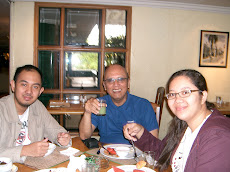
Live Longer, Better, Wiser
How To Live To 100
By Dr. Mark Liponis
Publication Date: 03/09/2008
With advances in medicine, healthier eating habits and less smoking, people have a greater possibility of living to 100 than at any time in recorded history. Here are some great ways to increase your chances:
Eat a Heart-Healthy Diet
A Mediterranean diet has been shown to be the best choice for healthy aging and disease prevention. On the list of countries in the world ranked by average lifespan, France, Italy, Greece, Spain and Israel are in the top 25; the U.S. ranks 45th. A Mediterranean diet is rich in colorful fruits and vegetables, olive oil, fish and whole grains with few processed, packaged or refined foods. Research shows it reduces the risk of cardiovascular disease more effectively than other diets, including low-fat diets.
Read the Newspaper
Centenarians are likely to be engaged in current events and take an active interest in what’s happening in the world around them. Becoming disconnected, isolated or withdrawn can mark the beginning of deterioration and loss of function. Staying connected and current keeps your brain working and increases your sense of purpose.
Go Forth and Multiply
Having kids—especially if you’re a woman—can help you live longer. In fact, giving birth after age 40 more than quadruples a woman’s chances of living to 100. Studies also confirm that men who father children live longer, especially if they start raising a family at a younger age.
Drink Up!
Studies indicate that you may live longer by drinking certain beverages—especially tea (more than four cups a day of green, black or oolong). Tea drinkers have lower rates of death from cardiovascular disease and other causes. Moderate wine intake (up to 5 ounces a day for women, up to 10 ounces a day for men) also has been found to reduce the risk of cardiovascular disease. Coffee is another potential “health drink,” with studies showing that moderate coffee intake is helpful in preventing diabetes, gallstones, Parkinson’s disease, cirrhosis, kidney stones and even heart disease.
Watch Your Waist
Centenarians are rare, and obese centenarians are like hen’s teeth: They just don’t exist. Keeping a trim waistline is a requirement if you are planning on living to 100. It’s especially important if you’re the type to carry extra baggage in the “belly compartment,” where excess weight contributes more to heart disease, high blood pressure and diabetes.
Get Married
Singles don’t tend to live as long as married people. A 2006 study from the Journal of Epidemiology and Community Health showed that never-married people were 58 percent more likely to die earlier than an age-matched group of married people. Divorced or separated people were 27 percent more likely to die earlier than married people.
Have Faith
When researchers compared occupations with life expectancy, they found that clergymen were among the longest-lived men and nuns were among the oldest women. Although the reasons aren’t yet clear, most centenarians reported having some kind of regular religious practice or belief. (watch out, you atheists !)
Buy the Farm
If you want to live to be very old, and you’ve always dreamed of having your own little organic farm in the Berkshires, now may be the time. Studies show that living out in the country extends life compared with city dwelling.















No comments:
Post a Comment